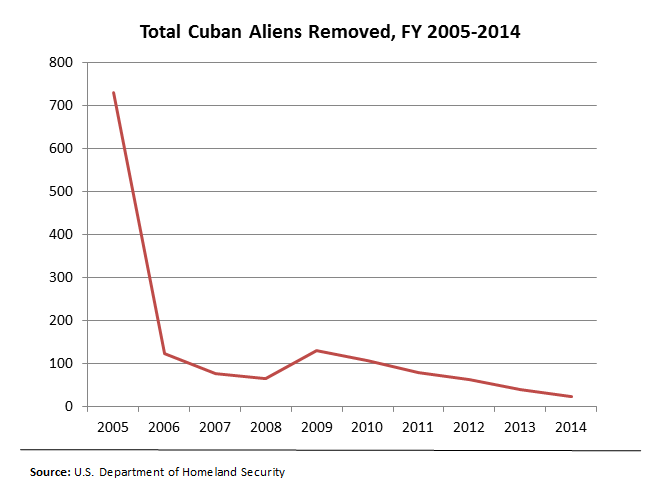The Cuban government criticized U.S. immigration policies, yet again, after 75 Cubans were deported from Ecuador.
According to a press release by the Cuban Ministry of Foreign Affairs, the Cuban illegal aliens were deported back to the island in "strict compliance with the provisions of the legislation of both countries and existing international standards for this type of situation, with the primary aim of ensuring an orderly, regular and safe migration flow, while responding to the commitment to prevent defenseless human beings from becoming victims of human traffickers."
The document then moves on to fault the United States and its policies for the current illegal flow of Cubans through Central America:
"The situation created with irregular migrants in the region, who initially traveled abroad legally, meeting all the requirements of our immigration regulations, to subsequently initiate an irregular journey encouraged by the 'wet foot-dry, dry foot' policy, the Cuban Medical Professional Parole Program, and the Cuban Adjustment Act, which give our citizens a selective and unique treatment throughout the world, while constituting a violation of the migratory agreements signed between the two countries, is the responsibility of the United States government and immigration policy, formed in recent decades . . . This policy is in inconsistent with the current bilateral context. It prevents the normalization of migratory relations between Cuba and the U.S. and creates problems for other countries, while it discriminates other migrants, including minors, who suffer abuse and repression at the U.S. border before being deported en masse."
This type of criticism is not new. The Cuban government made similar statements in November after Nicaragua closed its border to the islanders, causing a backlog in Costa Rica.
While Cuba accepted the deportees from Ecuador, the island has a very limited repatriation policy with the United States. The Cuban government will accept back only those Cubans who were identified in a 1984 repatriation agreement that covered the so-called Marielitos, who entered the United States in 1980 as part of a mass exodus.

The number of visa-less Cubans arriving to the United States has been increasing since 2009. However, the number of Cuban aliens removed (not necessarily to Cuba) has been decreasing. In FY 2009, 130 Cuban aliens were removed (86 criminal and 44 non-criminal aliens). By FY 2014, the number of removals dropped to 23 (15 criminal and 8 non-criminal aliens). It should be noted that Cuba's reluctance to take back its nationals is accompanied by a lack of political will, within the Obama administration, to enforce U.S. immigration laws.
On Thursday, the Full House Oversight and Government Reform Committee held a hearing to address these so-called recalcitrant countries. According to ICE 953,506 aliens with final orders of removal remain in the United States.
